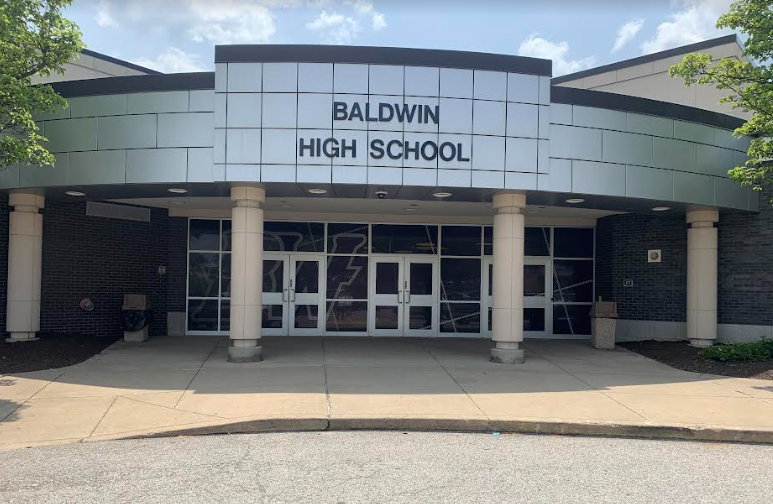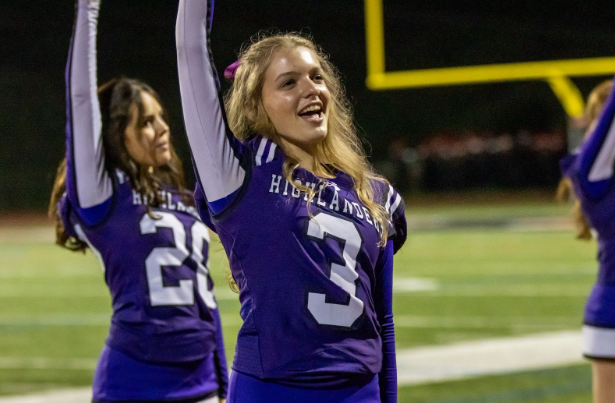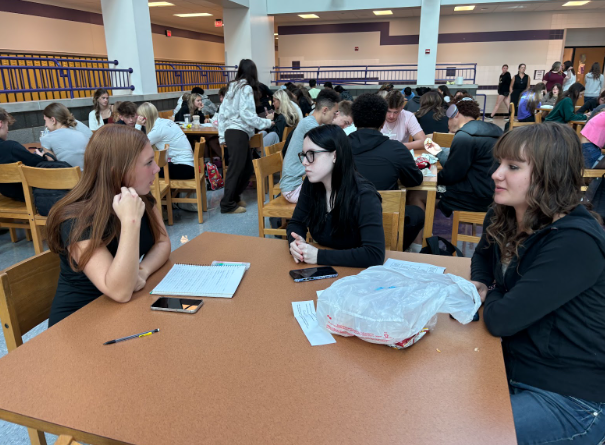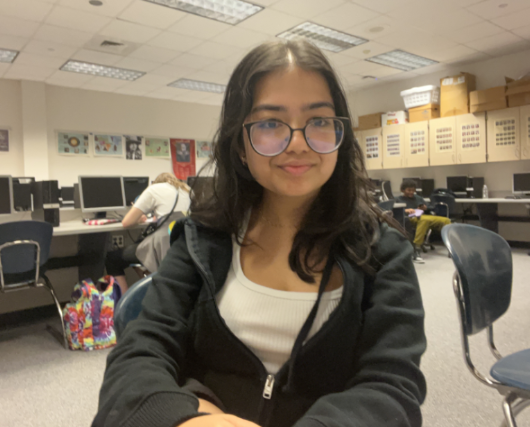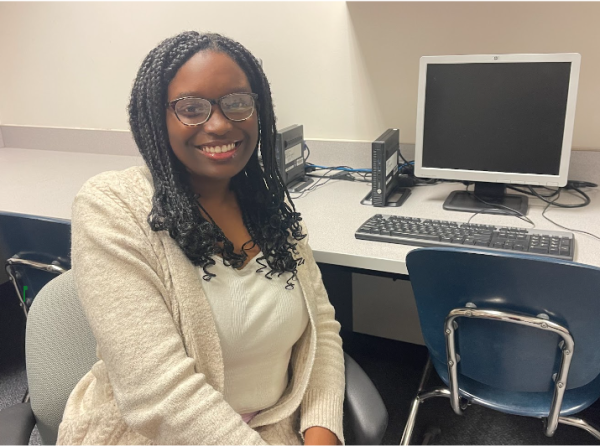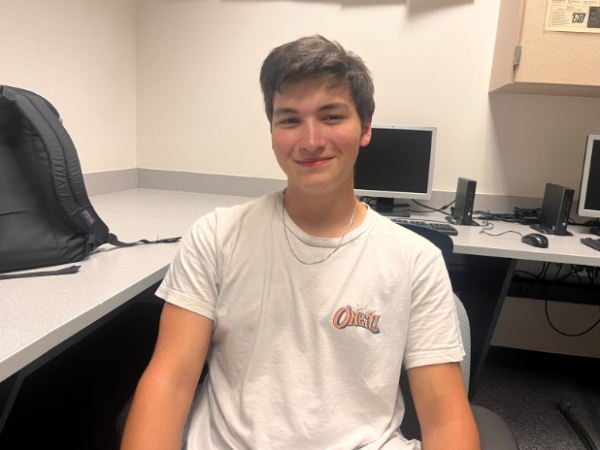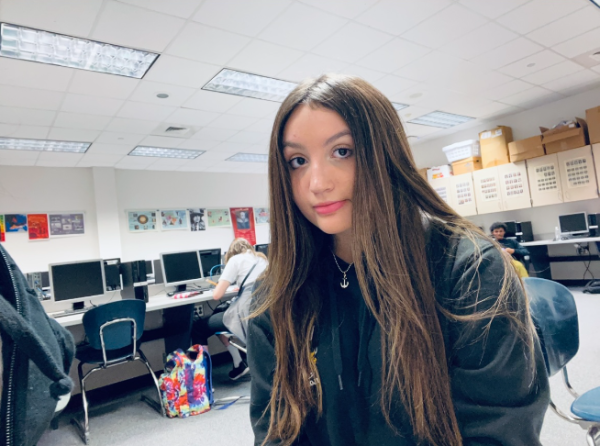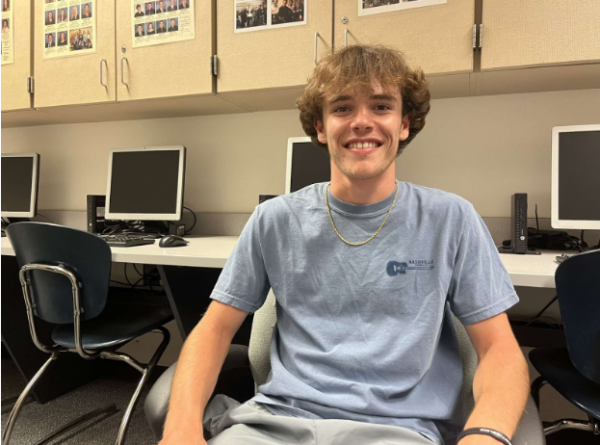Next year, Baldwin High School will take the first step in transitioning to a block-scheduling system. Blocked class periods – which run 90 minutes but meet every other day – will be piloted in some classes by teachers who volunteered.
Principal Shaun Tomaszewski, who is leading the efforts, along with several other teachers, said the change is necessary for Baldwin to better engage students in learning.
“Block scheduling is not an end goal. Block scheduling is a means to an end, and that end is to fundamentally reimagine teaching and learning at Baldwin High School,” Tomaszewski said. “We are (currently) doing school in a very similar manner to how they were doing school in the 1940s, aside from Canvas. I would argue that is not sufficient for kids in 2025.”
Only some classes will be blocked next year during the pilot phase. The plan is for the vast majority of classes to be blocked in the 2025-26 school year.
Tomaszewski’s experience as a teacher and college professor influenced him to have Baldwin move toward a block schedule as it promotes more hands-on learning, rather than lectures.
“I have taught science to high school freshmen all the way up to college seniors. I know the most powerful learning happens when kids and students at the university level aren’t just learning about science but when they are actually doing science,” Tomaszewski said. “Baldwin High School does not have lab periods for their regular-level science classes, which I think is absolutely asinine. You can’t learn any content area without deeply engaging in an extended amount of time in that particular content area.”
One expected change for the next year is the blocking of some freshman gym classes.
Physical education teacher James Wehner said some courses will benefit from having extra time, while in other courses, lessons will need to be changed.
“In strength training, it would be good for students to be able to stretch for 15 to 20 minutes and get their workout in,” Wehner said. “However, for team sports, I just don’t know if they would be able to do speedball for (a full block period). So when it comes to team sports, we would probably have to do two different activities in that block period.”
Wehner believes that for the change to maximize its potential, students will need to be in the physical education class that best suits them.
“They have to put the right kids in the right classes,” Wehner said. “They can’t put a kid who does not want strength training in that class.”
English teacher Daniel Harrold sees block scheduling as an opportunity to improve classes, though there likely will be some drawbacks.
“I think it is exciting because it is new and interesting. It’s going to have a lot of pros and cons at the same time. So the trick is maximizing the pros and limiting the cons. I think it’ll give us a lot of opportunities to do more long-form activities and a lot of opportunities to reduce waste in between wrapping and starting up lessons,” Harrold said.
“On the other hand, it’s going to take an adjustment for people to get used to being in the same place for 90 minutes and not burning out or needing a break halfway through,” Harrold said.
A majority of students probably will dislike the new change at first, he predicted, but then they will adapt and enjoy it as time goes on, since classes will be more activity-based than lecture-based.
“I think they already have some experience with this with lab periods, so it is going to come down to activities too… I think an activity will go better than just multiple lectures,” Harrold said.
Science teacher Tina Gaser imagines that students who have previously taken AP or honors-level science classes will adapt to the change more quickly than others.
“If a student has taken any kind of honors level or AP science, they have already experienced what a block is like being in a class for two periods, so I think they are just not used to the idea that social studies or math is being blocked,” Gaser said. “If they have never experienced a double period science before, then they can’t imagine it. But I think once they get into it they will start to see the time is going to fly because of the kinds of activities. I don’t think it is going to be as big of a deal as I feel they are thinking it is.”
When physics teacher Alexander Bowman was a student, his high school used a different kind of block schedule: In the “four-by-four” block, a student has four classes per semester, with each one meeting every day for 90 minutes. When the semester changes, students start four new courses. Bowman said that type of block made classes “feel repetitive,” but Baldwin’s block system should avoid that.
“I think Baldwin’s version will allow for a deeper inquiry next year, but it still won’t feel very repetitive,” he said. “The schedule is going to provide a good reflection of what college will be like for students pursuing that route.”
Math teacher Donna McCord, who has previously taught at a school with a blocked schedule, thinks students and teachers will easily be able to adapt to this new change.
“Students and teachers are always able to adapt – take COVID as an example. Block scheduling is an outstanding system. Not only is it helpful to the students, but also to the teachers,” McCord said. “Having 90 minutes allows teachers to truly instruct their students while the students can be more engaged and dive into each topic.”
She is looking forward to the blocks, and thinks her students will love it.
Students won’t experience blocked classes until the piloted courses begin next year, but so far their views on the concept seem mixed.
Freshman Charlotte Fauls said the big change seems daunting.
“I don’t like the fact that the block schedule is going to make classes longer. I feel like one class period is enough, and I also think it is going to be more work and more stressful,” Fauls said.
Junior Arturo Gromo, on the other hand, is excited for the change.
“This is a very big change for me in my senior year, but I feel like it could be a good thing and something new,” Gromo said. “Classes will be longer, but I think that would make them more informative and let students have a better understanding of the materials covered in class.”
Max Biedrzycki is a junior at Upper Saint Clair, which uses a block schedule. He said it gives him more time to focus on his classes.
“I like it because you have time to focus on certain classes on certain days,” Biedrzycki said. “We don’t have every class every day. But then again the classes are (longer), so sometimes that kind of stinks, but it does have some positives.”
Tomaszewski said he hopes and expects that this change will fundamentally transform what teaching and learning look like at Baldwin High School.
“We are actively talking about how to make this work through the instructional cabinet, with the department chairs, and with all of the teaching faculty,” Tomaszewski said.

